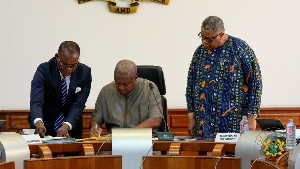Much as poverty exist in all parts of the globe, whether in the industrialized north or in the developing south of the divide, there is also no paucity of programs and interventions to address the many challenges suffered by the poor in society.
The scale of poverty in poor and middle-income countries is often associated with gross inequality of income distribution, which also affects macroeconomic growth and development. Most poor countries, especially in sub-Saharan Africa, are among the most unequal countries in the world.
Countries and their governments have created various interventions to deal reduce poverty of all forms and these have yielded some positive results in some instances. At the global level, the United Nations (UN) has contributed significantly to put the issues involved in poverty and its eradication on its agenda by proposing various development initiatives. The current Sustainable Development Goals (SDGs) in large measure, are mainly about addressing the issues of poverty. This is exemplified by the SDG-1 with its seven targets (objectives) seeks to end poverty in all its forms everywhere.
Even though, the UN estimates that about 10 percent (about 743 million) of the world’s population still live in extreme poverty, there are variations in the issues of poverty faced by poor people, and for which a one-size-fits-all solution may not apply. In fact, the Target 1.3 of SDG-1 recommends that governments need to implement social protection program and interventions that may be considered nationally appropriate for all . This point therefore, affirms the temporary nature and context-based nature of the issues in poverty even within the same country.
Pondering over the following questions will be useful in any fair evaluations of programs and initiatives to address the economic fortunes of the poor in society: How has economic growth programs affected the poor? Have the benefits of economic growth been broadly distributed over all income levels? There is no doubt that there has been a general improvement in the reduction of poverty levels across all developing countries, especially with regards to the broader welfare indicators of life expectancy, infant mortality, and school enrollments. However, for most countries, responses to these questions have largely been sketchy and varied for several reasons.
First, each country tends to exhibit considerable regional and subregional disparities in terms of resource endowments (human, material, natural), and the capability to harness their respective potential to improve the lot of citizens. For example, Ghana tends to have three distinct regions (coastal, forest and savannah) with varying development opportunities and challenges which propounds different economic growth poverty reduction potential for their respective residents.
Additionally, despite the in-country regional and subregional disparities, governments in developing countries, including Ghana, have mostly adopted centralized approaches to development planning and management. These centralized approach to development planning in most of the developing world over the years have been informed by political instability because the ruling elites struggle to consolidate political power needed to govern the public enterprises in their respective countries.
The case for Ghana beginning from 1966 up until 1988 when the country initiated a decentralization program and through which has achieved significant democratic and political consolidation. Over the same period, Ghana has seen great improvements in the fight against poverty, however, any such gains are yet to be felt universally across the different regions and subregions of the country.
Furthermore, other factors that work against the economic growth and poverty eradication programs in developing countries such as Ghana include discrimination against women, and the youth. Discrimination of any form can be detrimental to economic prospects because of its implications for access to land, financial resources, and employment opportunities. Development programs are also unevenly shared across the different regions and communities thereby perpetuating the disparities in the regional growth and development potential, and its attendant effects on overall poverty reduction efforts.
In respect of these highlighted concerns, the following proposals are put forth in the first part of the series on ‘Economic Alternatives for the Poor and Poverty Eradication’. My intention is to provoke national discourse dealing with issues of poverty and welfare by subjecting these proposals and many others that have been proposed by other writers to critical review and consideration as remedies for improving our economy. It is also meant to explore the options for harnessing the growth potential of the poor in society and positively affect the poverty levels in different communities, regions, and at the national level.
The proposals are about prioritizing development initiatives and interventions at the individual, household, community, regional and national levels that seek improvements in the lives and welfare of the poor in society. Key proposals discussed here include; industrialization and rural development; and decentralization and equity.
Industrialization and Rural Development: In developed countries, economic growth is driven by industrialization underpinned by strong manufacturing. There is a need to engage Ghanaian leaders and policy makers to promote industrialization on the continent, if we are to accelerate Africa's transition into a middle-income continent. An industrialization focuses on raising awareness on the challenges and opportunities in financing. The African Development Bank (AfDB) suggests that inclusive and sustainable industrialization will help Africa overcome its critical development challenges, which are clearly recognized in the 2030 Agenda for Sustainable Development. The Sustainable Development Goal 9 calls to build resilient infrastructure, promote sustainable industrialization and foster innovation.
Poverty reduction efforts in rural regions are mostly synonymous to growth. A country’s long-term growth strategy ought to be predicated on the modernization, restructuring and the development of the rural environment as the catalyst for transformation of the national economy.
Ghana as a predominantly agricultural country, stands to benefit from industrial development initiatives that target value-chain additions through agro-processing of food and tree crops cultivated by small-scale and commercial farmers. The entrepreneurial opportunities farming can be substantial given an appropriate marketing environment for employment of the youth, especially in rural areas and small towns, as well as generate foreign exchange for the country to finance development programs.
To this end, the Government’s efforts to transform the Ghanaian economy through the One District One Factory (1D1F) initiative has the potential modernize and restructure our rural communities from its subsistence orientation to a commercial, attractive, viable and dynamic sector which is vital for the achievement of sustained equitable growth. Restructuring of rural economies is an important aspect of decentralization, where functions and powers, responsibilities and resources are devolved from the center into the hands of folks at the periphery for the purposes of transforming the overall economy.
In all this, changing the meaning and understandings of agricultural activities especially among the youth as simply the way of life to that of a profitable commercial and industrial occupation can play an integral part in the transformation agenda to improve the welfare and economic potential of the people. Specific initiatives to make Agricultural careers and professions rewarding and attractive to the youth in small towns may include access to inputs and resources such as seeds, funding, land rights, marketing opportunities and advisory services.
Decentralization and Equity: Governance at the national level calls for a vigorous and progressive deepening of decentralization. And this is aimed at devolving powers from the centre to the peripheries so that Assemblies will have significant spaces to plan and manage their respective development trajectories that suit the peculiar needs of their jurisdictions. within the context of relevant legislation. Governance in this regard is also to ensure equity in the distribution of the national cake where the poor and the marginalized will benefit just like everyone else in the country.
The Local Governance Act, 2016 (Act 936) in its sections 40 – 45 make provisions for citizen participation to ensure that the planning of development programs by Local Government Authorities are carried out in a participatory manner, and satisfy accountability requirements. It therefore necessary for some attention to be paid to the requirements of the participatory provisions. This is because the provisions have great potential to ensure that Assemblies work with their residents to plan appropriate interventions to address growth and development challenges of the residents, implement and review impacts of the interventions that are meant to improve the well-being of the people.
In this first part of the series on ‘Economic Alternatives for the Poor and Poverty Eradication,’ I have highlighted some alternative proposals programs to improve the economic alternatives of the poor. These are policies if critically given the needed attention and support by the State and all other stakeholders can have the potential to yield the desire results. Meanwhile, most of these interventions as well as the many that are already being implemented will require sustainability measure or plans to sustain the gains made.
Patrick Tandoh-Offin, PhD
Senior Lecturer in Public Management & Community Economic Development
School of Public Service and Governance
Ghana Institute of Management and Public Administration (GIMPA)
ptandoh@gimpa.edu.gh
Opinions of Thursday, 6 May 2021
Columnist: Patrick Tandoh-Offin, PhD
Towards improving the Economic Alternatives of the Poor (Part I)
Entertainment

Daddy Lumba's 'ghost' is tormenting us – Aunt cries out
Opinions












